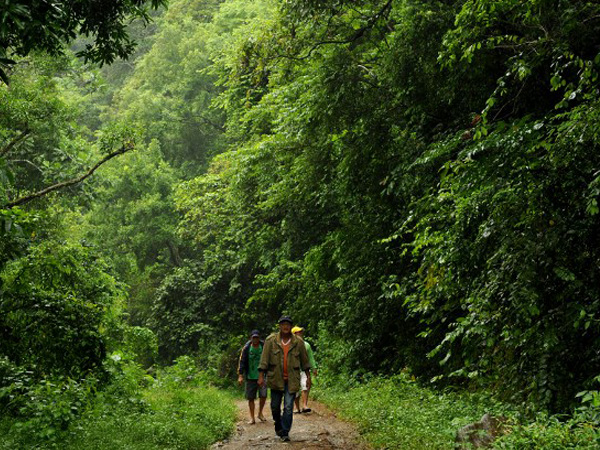DENR eyes massive Ipo Dam watershed reforestation in 2021

Forest rangers patrolling at the Ipo Dam watershed at Norzagaray, Bulacan, three hours north of Manila. AFP FILE PHOTO
MANILA, Philippines — Around 365,000 native trees are set to be planted at the Ipo Watershed in Norzagaray, Bulacan next year, the Department of Environment and Natural Resources (DENR) said Thursday.
“Ipo Watershed, which supplies fresh water to 20 million people living or working in Metro Manila, will be bolstered with hundreds of thousands of new trees next year,” DENR said in a statement.
Thousands of native trees such as Narra, Lauaan, Kupang, and Yakal are expected to be initially planted once restrictions to contain the coronavirus disease (COVID-19) are lifted next year.
This was made possible through donations from GCash, DENR, the United Nations Development Programme’s Biodiversity Finance Initiative (BIOFIN), and the World Wide Fund for Nature (WWF).
“We originally wanted to plant in mid-2020, but decided to heed lockdown guidelines to ensure public safety,” said Mabel Niala, Mynt Public Affairs and CSR Head of GCash.
Article continues after this advertisementGCash users can also contribute to the project by earning Green Energy Points through GCash Forest. According to GCash, users can earn points by paying bills online. The points are also garnered anytime a user opt for activities that can reduce their carbon footprint.
Article continues after this advertisementA native tree will be planted on behalf of GCash users once they reach a total of 20,560 points.
According to DENR, around 52,000 trees are being cut down daily. The department also noted that there are only 7.168 million hectares of forestland remaining in the country,
“Logging, slash-and-burn-farming, and land development are annually erasing 47,000 hectares of forestland – an area thrice the size of Quezon City,” said DENR.
Meanwhile, Ipo Watershed which supplies most of Metro Manila’s water needs and is home to several native species of wildlife is also affected by slash-and-burn or kaingin farming and charcoal-making.
“From 85%, forest cover plummeted to 40% in recent years,” DENR added.
“It is estimated that for 2021, Metro Manila’s water demands will overtake supply by as much as 13% during peak days, meaning more dry faucets and unserved households – but taking care of watersheds can avert this,” the department noted.